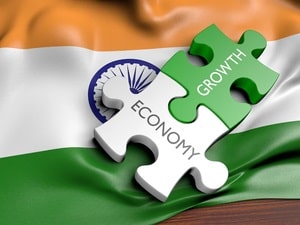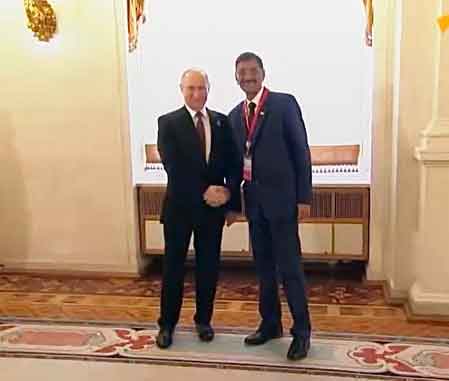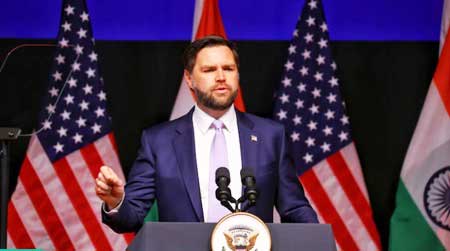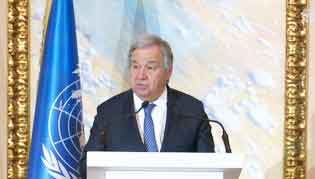Indian economy's growth rate projection for this year has been raised by 0.7 per cent to 6.9 per cent from the forecast made in January by the UN and it retains its position as the world's fastest-growing large economy.
The better outlook is fueled by lower inflation, robust exports, and increased foreign investments, Hamid Rashid, the chief of the UN’s Global Economic Monitoring Branch, said on Thursday.
"The drivers (of higher projection) are very simple: inflation has come down significantly, and that means the fiscal position is not as constrained as in other countries," he said at the release of the mid-year edition of the World Economic Situation and Prospects (WESP) report.
Exports, which is another element in the improved projection, have been "pretty robust" and India is also benefiting from more investments coming in from other Western sources while the flow to China is coming down, Rashid said.
"India has become an alternative investment source or destination for many Western companies," he added.
Another factor benefiting India, he said, is the special import arrangement India has with Russia for oil that is lowering its cost, he said.
The WESP report also gave a positive picture of the employment situation, saying: "In India, labour market indicators have also improved amid robust growth and higher labour participation."
It said that the women’s labour force participation has increased particularly in South Asia.
India’s growth projection for next year remains at 6.6 per cent, which was made in January.
Last year, the WESP report said, India's economy grew by 7.5 per cent and in 2022 by 7.7 per cent when it received a big short-term boost coming out of the drastic Covid slowdown.
The report also revised the projection for the world economy this year to 2.7 per cent, an increase of 0.3 per cent from January.
"Most major economies have managed to bring down inflation without increasing unemployment and triggering a recession," the report said adding a cautionary note, "However, the outlook is only cautiously optimistic as higher-for-longer interest rates, debt difficulties, and escalating geopolitical risks will continue to challenge stable and sustained economic growth".
The developing economies on the whole are growing at a faster clip -- clocking 4.1 per cent -- than the developed economies which are expected to record only a 1.6 per cent growth rate this year.
However, the growth among developing countries is uneven, the WESP report stated.
While large developing economies like India, Indonesia and Mexico are benefiting from strong domestic and external demand, many African, Latin American and Caribbean economies are on a "low-growth trajectory" because of "lingering political instability", higher borrowing costs and exchange rate fluctuations, it said.
China's economy is projected to grow by 4.8 per cent this year, making it the second fastest-growing large economy.
The US economy is projected to grow by 2.3 per cent this year.
"Despite the most aggressive monetary tightening in decades, a scenario of hard landing of the United States economy has receded," the report said.
Looking ahead, the WESP saw risks and opportunities in rapid technology changes.
"The breakneck pace of technological change -- including in machine learning and artificial intelligence -- presents new opportunities and risks to the global economy, promising to boost productivity and advance knowledge on the one hand, while exacerbating technological divides and reshaping labour markets on the other," the report said.






Indian armed forces destroy Pakistani posts, launch pads; intercept multiple Pakistani drones
In yet another befitting reply to Pakistan's nefarious activities, the Border Security Force (BSF) has completely destroyed a Pakistani post and a terrorist launch pad in Looni, District Sialkot, opposite Akhnoor area, from where the tube drones were being launched to attack India.
32 airports shut till May 15 as tensions escalate between India-Pakistan
The Airports Authority of India (AAI) and relevant aviation authorities have issued a series of Notices to Airmen (NOTAMs), announcing the temporary closure of 32 airports across northern and western India for all civil flight operations, effective till May 14.
IMF reimbursement to Pak will not help in de-escalation of hostilities with India: J&K CM Omar
Jammu and Kashmir (J&K) Chief Minister, Omar Abdullah on Saturday expressed serious concern over the International Monetary Fund (IMF) reimbursement to Pakistan, which the CM said would not help de-escalation of hostilities between India and Pakistan.
Missile-like object falls from sky in Balotara, drone debris found in Jaisalmer
A loud explosion was heard in the Gida area of Balotara late on Friday night as a missile-like object fell from the sky near Dewasi ki Dhani of Jagram ki Dhani Panchayat.
Condemning egregious terror attack in Pahalgam, G7 appeals to India, Pak to de-escalate
The G7 nations on Saturday urged immediate de-escalation amid rising tensions between India and Pakistan following alleged missile strikes.
India says highly revered Nankana Sahib Gurdwara in Pakistan's Punjab safe
The highly revered Gurdwara Nankana Sahib, the birthplace of the founder of the Sikh religion, Guru Nanak Dev, in Pakistan's Punjab province is safe, the Indian government said.
Pakistan closes airspace temporarily after India accuses it of using civilian flights as shields
Pakistan on Saturday shut down its airspace temporarily, hours after India accused the former of using commercial flights as shields amid drone attacks.
Loud blasts cause panic in J&K's Srinagar, Akhnoor areas
Panic gripped Jammu and Kashmir's Srinagar city and Akhnoor area in Jammu division on Saturday as massive blast-like sounds were heard forcing morning walkers to rush back home while overnight pounding of civilian areas in Poonch and Rajouri districts by Pakistan Army caused major damage.